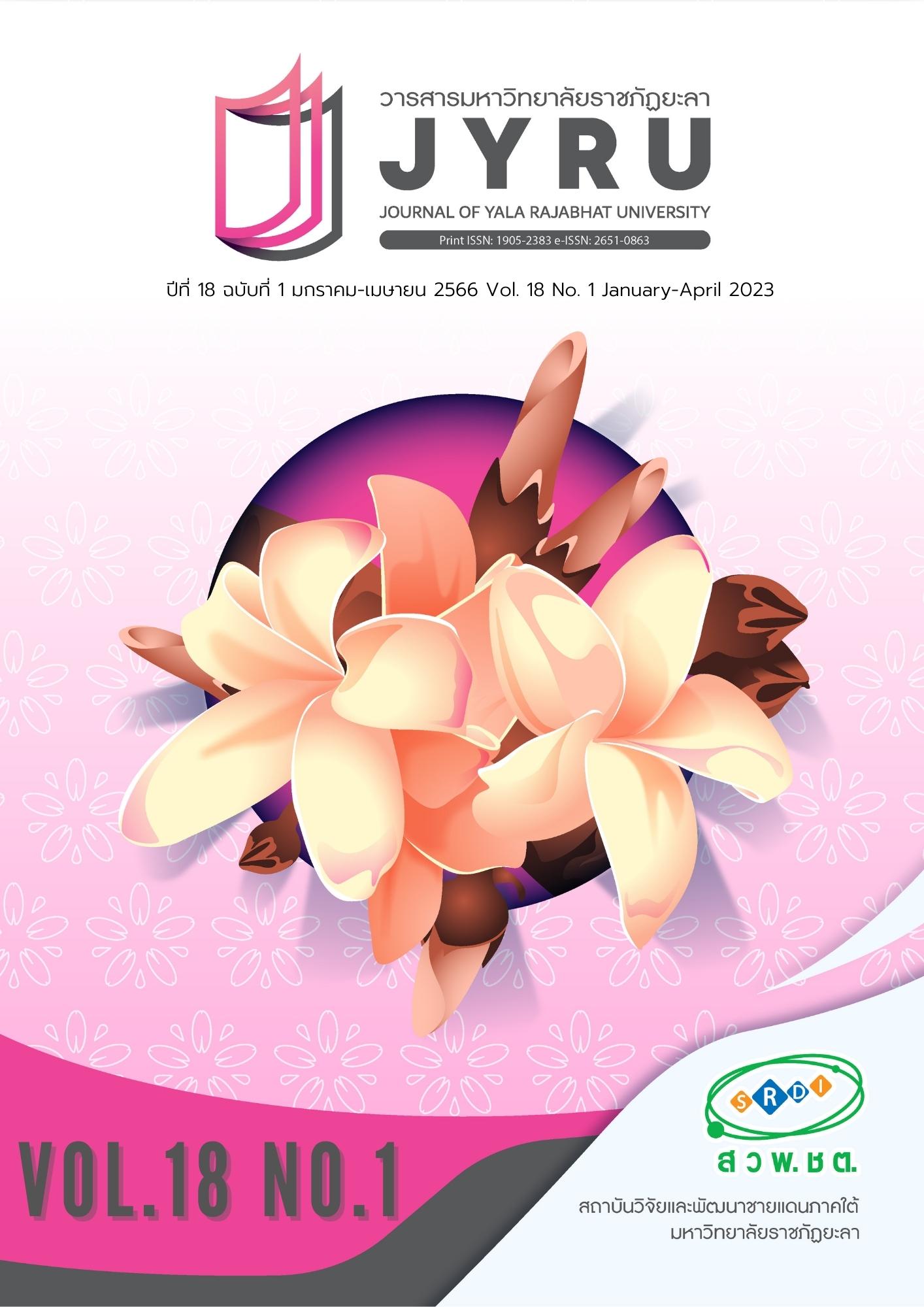ลักษณะเด่นสำคัญของรูปแบบการเป็นพี่เลี้ยงและให้คำปรึกษาที่ส่งเสริมสมรรถนะด้านการทำวิจัยปฏิบัติการในชั้นเรียนวิทยาศาสตร์สำหรับนักศึกษาครู
Main Article Content
บทคัดย่อ
การวิจัยเชิงคุณภาพภายใต้กระบวนทัศน์เชิงตีความนี้มีวัตถุประสงค์เพื่อศึกษาและสังเคราะห์ลักษณะเด่นสำคัญของรูปแบบการเป็นพี่เลี้ยงและให้คำปรึกษาเพื่อส่งเสริมสมรรถนะด้านการทำวิจัยปฏิบัติการในชั้นเรียนวิทยาศาสตร์ของนักศึกษาครูจากการสัมภาษณ์อาจารย์นิเทศก์จากมหาวิทยาลัยจำนวน 8 แห่ง โดยใช้แบบสัมภาษณ์กึ่งโครงสร้างเกี่ยวกับการเป็นพี่เลี้ยงและให้คำปรึกษาเพื่อส่งเสริมสมรรถนะด้านการทำวิจัยปฏิบัติการในชั้นเรียน วิเคราะห์ข้อมูลแบบอุปนัยร่วมกับการวิเคราะห์เชิงเนื้อหา ผลการวิจัยพบว่าลักษณะเด่นสำคัญของรูปแบบการเป็นพี่เลี้ยงและให้คำปรึกษาทั้ง 8 รูปแบบมีลักษณะร่วมกัน ประกอบด้วย 5 ลักษณะเด่นสำคัญ ได้แก่ การให้นักศึกษาพบเจอปัญหาในชั้นเรียนด้วยตนเอง การนัดพบเพื่อให้คำปรึกษาแบบตัวต่อตัว การให้ความช่วยเหลืออย่างทันเวลา การหาตัวอย่างที่ดีของงานวิจัยปฏิบัติการในชั้นเรียน และการแลกเปลี่ยนและแบ่งปันผลการวิจัยปฏิบัติการในชั้นเรียน ข้อค้นพบในงานวิจัยนี้ได้ให้ข้อเสนอแนะแก่สถาบันผลิตครูและผู้ที่เกี่ยวข้องในการส่งเสริมสมรรถนะด้านการทำวิจัยปฏิบัติการในชั้นเรียนให้ประสบความสำเร็จ
Article Details

อนุญาตภายใต้เงื่อนไข Creative Commons Attribution-NonCommercial-NoDerivatives 4.0 International License.
บทความ ข้อมูล เนื้อหา รูปภาพ ฯลฯ ที่ได้รับการเผยแพร่ในวารสารมหาวิทยาลัยราชภัฏยะลานี้ ถือเป็นลิขสิทธิ์ของวารสารมหาวิทยาลัยราชภัฏยะลา หากบุคคลหรือหน่วยงานใดต้องการนำทั้งหมดหรือส่วนหนึ่งส่วนใดไปเผยแพร่ต่อหรือกระทำการใดๆ จะต้องได้รับอนุญาตเป็นลายลักษณ์อักษรจากวารสารมหาวิทยาลัยราชภัฏยะลาก่อนเท่านั้น
เอกสารอ้างอิง
Bogdan, R. & Biklen, S. K. (2003). Qualitative research for education: An introduction to theories and methods. (4th ed.). Pearson Education Group, Inc.
Connor, M. & Pokora, J. (2012). Coaching and mentoring at work: Developing effective practice. (2nd ed.). Maidenhead: Open University Press.
Faikhamta, C. (2012). Science classroom action research: A critical theory perspective. Kasetsart Educational Review, 27(3), 19-36. (in Thai)
Faikhamta, C., & Clarke, A. (2015). Thai pre-service science teachers engaging action research during their fifth year internship. Asia Pacific Journal of Education, 35(2), 259-273.
Faikhamta, C., Jareonsuk, C., Srinakarin, D. & Boriboon, P. (2016). Science classroom action research. Bangkok: Institute of Academic Development (IAD). (in Thai)
Inoue, N. (2015). Beyond actions: Psychology of action research for mindful educational improvement. New York, NY: Peter Lang.
Jantarakantee, E. (2016). Coaching and mentoring system model for developing science teachers’ teaching practices and the ability to conduct classroom action research. Journal of Graduate Studies Valaya Alongkorn Rajabhat University, 10(1), 128-141. (in Thai)
Kemmis, S., McTaggart, R. & Nixon, R. (2014). The action research: Doing critical participatory action research. Singapore: Springer, Sage Publications.
Ketsing, J. (2014). Preservice teachers’ difficulties in teaching inquiry in Thai science classrooms. The International Science Education Conference 2014 (ISEC 2014), November 25-27, 2014. Singapore: National Institute of Education.
Ketsing, J. (2017). Preservice science teachers’ challenges in doing classroom action research and learning activities to cope with the challenges. Kasetsart Journal of Social Sciences, 38(3), 457-469. (in Thai)
Loucks-Horsley, S., Stiles, K. E., Mundry, S. Love, N. & Hewson, P. W. (2010). Designing professional development for teacher of science and mathematics. (3rd ed.). Corwin Press.
McNiff, J. & Whitehead, J. (2011). All you need to know about action research. (2nd ed.). London: Sage Publications.
Nuangchalerm, P. (2018). Action research in teaching. Khon Kaen: Klungnana Vitthaya Press. (in Thai)
Phuaphan, N. (2021). Effects of mentoring model for enhancing competency in teaching and classroom action research for general science student teachers. School of Educational Studies, 14(1), 45-59. (in Thai)
Supprakob. S. (2017). Enhancing beginning chemistry teachers’ pedagogical content knowledge for teaching the nature of science through mentoring program. Doctoral Thesis. Kasetsart University.
Vitayacheeva, P. & Noparit, T. (2018). Professional development of higher education instructors through mentoring: A Phenomenological study. Journal of Yala Rajabhat University, 13(1), 47-58. (in Thai)


